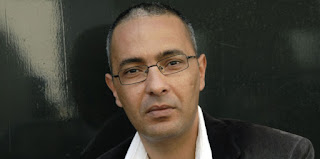Today I don't have any
message. I have mainly confusion and will try to pass along the fog
surrounding me.
I am not an expert on political
commentary or history or economics. I only have some experience in the
basic science of biochemistry and protein chemistry.
I try to keep up with current events by following different sources. Radio, TV, international news. It is ever more confusing to understand what the truth is especially after the Paris attacks of November 13.
Who is Isis? How did it it begin? Whose fault is it? Who is funding it? What is the best way to fight it? You will hear as many opinions as there are commentators. And all commentaries come with some bias: political right or left. Religious orthodox or secular. Emotionally the hard and the soft.
I like to follow an Israeli radio program that reviews the world newspapers. This week most front page articles were about the Paris attacks. Yitshak Noy, certainly with his own bias mentioned an exceptional article in the New York Times by an Algerian writer.
I try to keep up with current events by following different sources. Radio, TV, international news. It is ever more confusing to understand what the truth is especially after the Paris attacks of November 13.
Who is Isis? How did it it begin? Whose fault is it? Who is funding it? What is the best way to fight it? You will hear as many opinions as there are commentators. And all commentaries come with some bias: political right or left. Religious orthodox or secular. Emotionally the hard and the soft.
I like to follow an Israeli radio program that reviews the world newspapers. This week most front page articles were about the Paris attacks. Yitshak Noy, certainly with his own bias mentioned an exceptional article in the New York Times by an Algerian writer.
Saudi Arabia, an ISIS That Has
Made It:
Kamel Daoud
This article is exceptional as it talks "On the Religious Industrial Complex of Saudi Arabia", a sensitive topic in an oil dependent world. In the newspaper that usually holds left wing opinions.
Here is an excerpt:
"It is worth reading certain
Islamist newspapers to see their reactions to the attacks in Paris. The West is
cast as a land of “infidels.” The attacks were the result of the onslaught
against Islam. Muslims and Arabs have become the enemies of the secular and the
Jews. The Palestinian question is invoked along with the rape of Iraq and the
memory of colonial trauma, and packaged into a messianic discourse meant to
seduce the masses. Such talk spreads in the social spaces below, while up
above, political leaders send their condolences to France and denounce a crime
against humanity. This totally schizophrenic situation parallels the West’s
denial regarding Saudi Arabia."
I see this article as pointing
out a reality in the Arab world. I have read many of Ayaan
Hirsi Ali's writings. I have been following this Somali woman who
grew up Muslim. She is considered an infidel and Muslims are threatening
her since they murdered the Dutch director Theo Van Goch. She insists
that Islam must have a reformation and specifically the problem of
"preaching teachers."
Another opinion published in the
same newspaper by Thomas L. Friedman is showing a softer point of view:
Cabs, Camels or ISIS
Thomas Friedman
In this article we hear about
positive innovations in the Arab world and the need to strengthen good non ISIS
Sunnis. But he ends the article so:
"Turkey cares more about
defeating Kurds; Saudi Arabia and its Arab Gulf allies care more about
defeating Iran and its proxies in Iraq, Yemen and Syria; Qatar cares more about
promoting the Muslim Brotherhood in Syria and annoying Saudi Arabia; Iran cares
more about protecting Shiites in Iraq and Syria than creating a space for
decent Sunnis to thrive; and many of the non-ISIS Sunni activists in Syria and
Iraq are still Islamists — and they’re not going away. How do you weave a decent
carpet from these threads?
I don’t know — and until I do I’d
be cautious about going far beyond what we’re already doing. Paris may be
totally different today. The Middle East is not."
Each of us can read these
articles and figure out what should we do next. Many people agree with me
that we should insist on sustainable sources of energy. Heard from a
friend how to take personal action:
-started by
successful Israel entrepreneurs to fight the energy establishment that steers
the US policies to support the Saudi Kingdom.
And we should remember to be thankful.
And we should remember to be thankful.



No comments:
Post a Comment